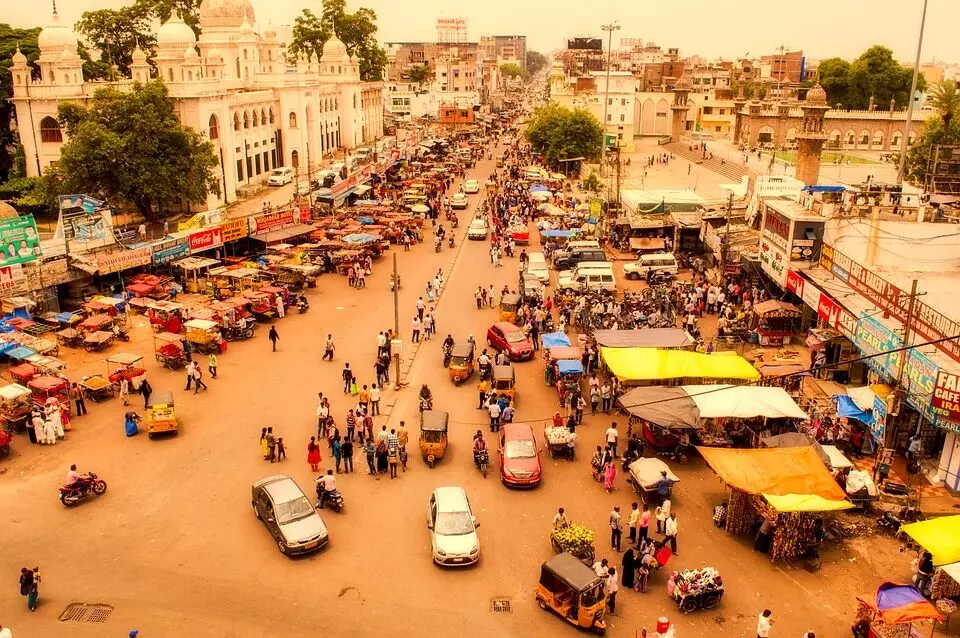Bridging the gulf
While the focus on infrastructure development is justified, the social-emotional needs of urban migrants also need to be fulfilled; writes Prabhat Sharma

India is growing as a result the cities are also growing. New cities are being added; existing cities are also expanding exponentially both in terms of area and population. But one pattern in the growth pattern of cities is that there are always two areas that emerge: one is planned and another is unplanned.
Let's elaborate a little bit. Cities have always grown as a direct result of the socioeconomic and political development of the country. Cities serve as the administrative and political hubs for institutions such as district towns, state capitals, and block offices. Cities also expand around trade routes, the development of industry, and economic activity. Cities often develop around temples, colleges, and other educational and religious institutions. Individuals travel to these locations for daily employment, and some are relocating for better connectivity, healthcare, education, and other amenities. Cities are designed to draw talent from all across the nation and even overseas. As a result, cities are becoming more and more egalitarian and fostering the growth of diverse viewpoints and ideas.
Thus, it offers a wealth of chances for development and education. Cities are the engine for growth and wealth. Urbanization is sort of a must for rapid development and expansion. The tax revenue from this can be used by the government in a variety of ways, depending on its needs. 56 per cent of people worldwide live in urban areas on average. Between 80-90 per cent of the developed countries are urbanized. While only 36 per cent of us live in metropolitan areas. But, we are also urbanizing and aim to reach a 50 per cent urbanization rate within 20 years.
Even in India, states that are more urbanized have higher per capita GDPs than states that are less urbanized. Despite this, big cities contribute more to India's GDP than other cities. Even now, there are views in favour of implementing night shift work in a few big metropolises in India, in keeping with some of the world's most populous cities. There are several causes for this, including releasing latent troughs, accommodating various time zones' needs, offering services to night operators, etc. This provides more opportunities for store owners, hotels, malls, movie theatres, etc.
Moreover, multinational corporations will favour India over other significant developing nations. Yet we must also exercise some caution and vigilance. For young people, cities are becoming their ideal setting. India has a large population of young people, however, they are not well educated or qualified to deal with the world's constant change, whether it be in IT, lifestyle, traffic values, professional hindrances, occupational health and engineering, or their own personal habits and beliefs. This desire is shared by labourers who migrate widely to pursue it as well as middle-class people with first-generation Western education.
Despite this, it occurs everywhere from smaller towns to middle-level metropolises to megacities. Cities must build their infrastructure in the areas of roads, housing, metros, and other amenities to accommodate all these migrants and settlers. But, we don't pay attention to their emotional needs. Reflecting is increasing in frequency. But I'm focusing on only one aspect of my argument. Governments undoubtedly take care of the infrastructure requirements for the aforementioned, but they also need to handle the emotional demands brought on by the rapid urbanization of migration. This became more important as a result of the isolation felt by those living in tiny towns and villages, or "Apanapan" as we call them in Hindi. Simply put, they are adapting too quickly and altering Urabian culture and values. Both of them lack tolerance because they did not emotionally or socially prepare for this. But, your opinion may not be sufficient for the institution, society, or organization. These older teenagers might not receive the resolution they were hoping for or the price they were paying. Frustration and a lack of organizational support or support from family and friends lead to depression and other mental illnesses.
There is a dramatic rise in the number of young people attempting suicide. The government and its institutions, private sector enterprises, and civil society must urgently address this. I worry that we might turn towards 'urbicide' if we fail as a group.
The writer is Ex-Head, Corporate Communications & CEO, PPL, Social Research and Communications. Views expressed are personal



